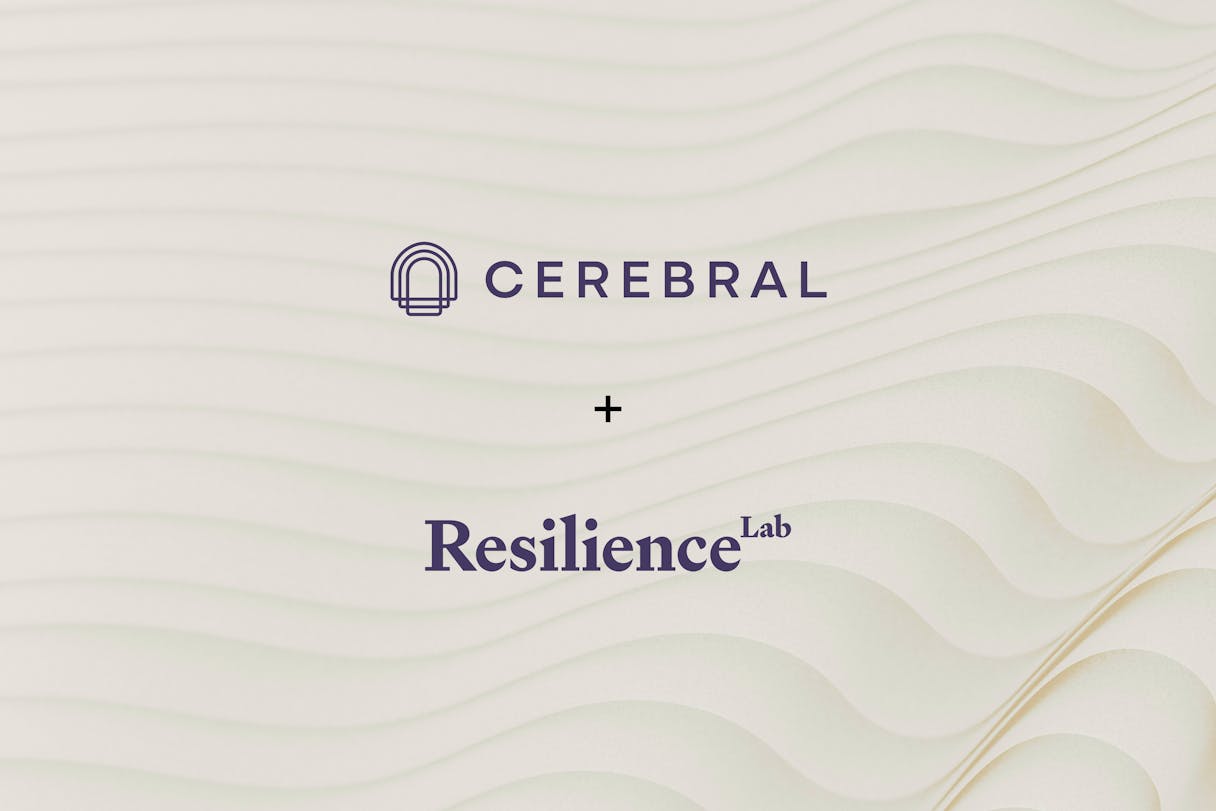May is Mental Health Awareness Month, and we're celebrating by taking on some of the biggest topics and challenges in mental health. Today we’re discussing how to decide if it’s time to get help. Read on for more information on the key indicators for seeking help and how to get the help you need.
What would you do if you had a broken arm? If you’re like most people, you’d probably make sure to see a doctor quickly and regularly, take care of your cast, take some pain medicine, and rest as much as possible until it heals.
Imagine if getting help with your mental health was just as easy!
People often forget that mental health is just as important as physical health. Living with mental illness can be just as debilitating as having a broken bone.
But since mental health disorders aren’t usually as visibly obvious, it’s hard to tell when it’s time to seek professional help.
On top of that, the stigma against mental health has made it hard for people to find help. Many people still think that going to therapy or taking medication means you’re taking the “easy way” out, or that depression and anxiety will go away without any help.
That can’t be further from the truth. In fact, getting help for your mental health is just as important as getting help for your physical health.
Here are some ways to tell if you should start therapy or seek medication treatment:
You’re experiencing symptoms of depression or anxiety
Depression and anxiety are difficult on their own, but they can also be indicators of other mental health conditions. Either way, experiencing the symptoms of either could be an indication that it's time to get help.
Symptoms of depression and anxiety include:
- feeling hopeless, helpless, or worthless
- no longer being interested in the things you used to enjoy
- not being able to focus on anything
- experiencing fatigue or aches and pain
- being easily irritated or experiencing mood swings
- worrying excessively or irrationally
- having thoughts of self-harm or suicide
Note: If you’re feeling extreme thoughts of self-harm or suicide, please call the National Suicide Hotline immediately at 1-800-273-8255.
You feel tired all the time
When you’re struggling with your mental health, simple things like getting out of bed or brushing your hair may seem impossible. A care team can see if there are any deeper, underlying health issues. They can also teach you ways to improve your energy and get better sleep.
Your coping mechanisms have stopped working or become harmful
There are a lot of healthy ways to cope with feeling sad or angry. But if you find yourself using unhealthy coping mechanisms like drinking heavily or spending compulsively, that could be a sign of a deeper issue.
A therapist and provider can help you sort through what’s going on and teach you how to use healthy coping mechanisms for better mental health.
You find it difficult to be social or maintain relationships
You might find yourself isolating or distancing yourself from your friends and family when you’re struggling with your mental health. Talking privately with a therapist can help you understand what’s going on and how to maintain healthy bonds with people who love you.
You’ve experienced a life-changing event
Maybe you’re going through a divorce or dealing with the death of a loved one. Big life changes can make you feel out of control, but you can process your emotions healthily with the help of a therapist and care team. Certain medications can also help.
You’re interested in getting to know yourself better
One great thing about online therapy: you can start anytime! You don’t need to wait until you have a crisis.
Talk therapy is a great way to learn about yourself and process your emotions. With a therapist and care team, you can learn how to deal with stress and everyday issues that pop up in your life.
How to Get the Help You Need
Talk to someone you trust
Confiding in people you trust about how you’re feeling is a good first step on the road to mental health treatment. Remembering that there are people who love and support you can give you the boost you need to seek professional help.
Prioritize self-care
Taking care of yourself is a great way to help improve your mental health. Self-care is important for everyone and can help you deal with symptoms you may be experiencing.
Some things you can try include:
- Writing your feelings down in a journal
- Meditating regularly
- Staying hydrated
- Exercising consistently
- Developing healthy routines
- Eating a healthy diet
- Spending time in nature
- Getting more restful sleep
Take a free emotional health assessment with Cerebral
Cerebral makes it easy to seek long-term mental health treatment with plans that include talk therapy and medication management for one affordable and flat monthly rate.
Our holistic approach to mental health care means that you don’t need to jump through hoops to find a therapist or health care provider. You can get mental health care without even needing to leave your home.
With Cerebral, taking the first step to feeling well is easy.
To get started, all you need to do is:
- Fill out a short online form. Just a few short questions to help us understand your symptoms.
- Hop on a video/phone call with your prescriber or therapist. Your prescribing provider will help determine your treatment plan. If you choose a therapist, you can meet with them once per week.
You can choose from any of our plans, which are:
Therapy
- Weekly video/phone sessions with a licensed therapist
- Chat securely with your therapist anytime
- Regular progress tracking by your therapist
Medication + Therapy (our most effective plan)
- Evaluation, diagnosis, and prescription by a medical provider
- Weekly video/phone sessions with a licensed therapist
- Monthly medication delivery (if prescribed)
- Chat securely with your therapist anytime
- Regular progress tracking by prescriber & therapist
Medication & Care Counseling
- Evaluation, diagnosis, and prescription by a medical provider
- Monthly medication delivery (if prescribed)
- Regular video/phone sessions with an assigned therapist
- Evidence-based behavioral health counseling & regular progress checks
If you’re struggling with your mental health, you are not alone. In fact, 47.1 million people in the U.S. live with a mental health condition. But you don’t need to face it alone. Cerebral can help you get started with mental health treatment in a way that suits you.
Medically reviewed by: David Mou, MD, MBA

Our Care: The Resilience Methodology

A New Era of Mental Healthcare: How Cerebral Is Expanding High-Quality, Personalized Care

6 Self-Care Tips for Stress and Burnout Recovery

Call 911 if you’re having a
mental health emergency
Text Home to 741-741 if you're in emotional
distress and need immediate support
Call or text 988 Suicide &
Crisis Lifeline. Chat service
is available at 988lifeline.org.